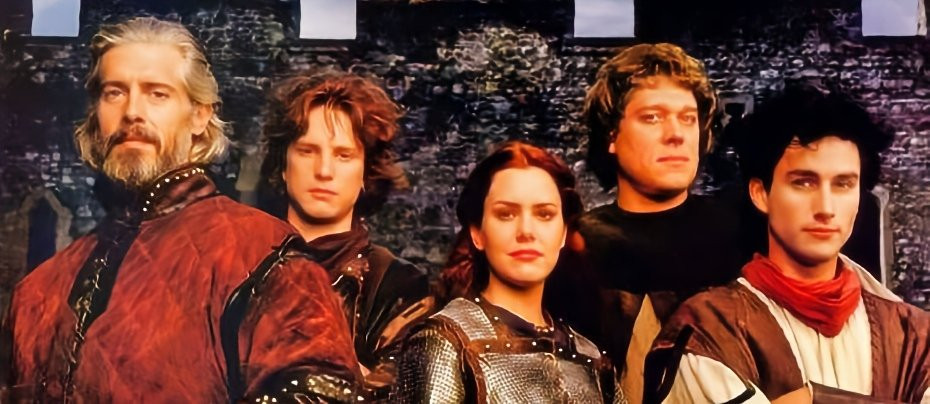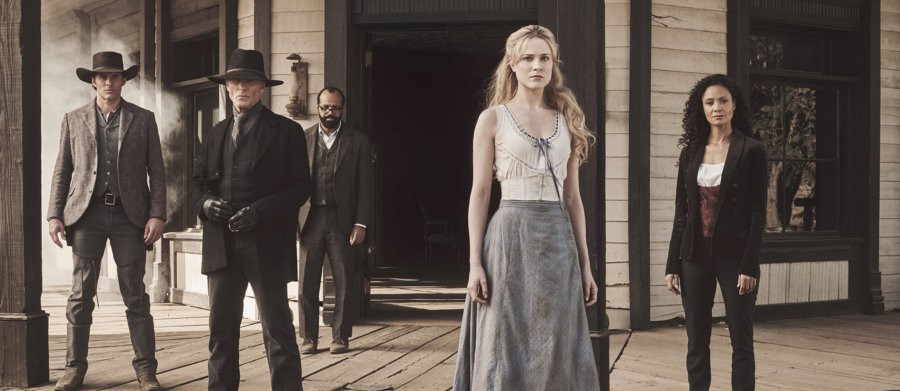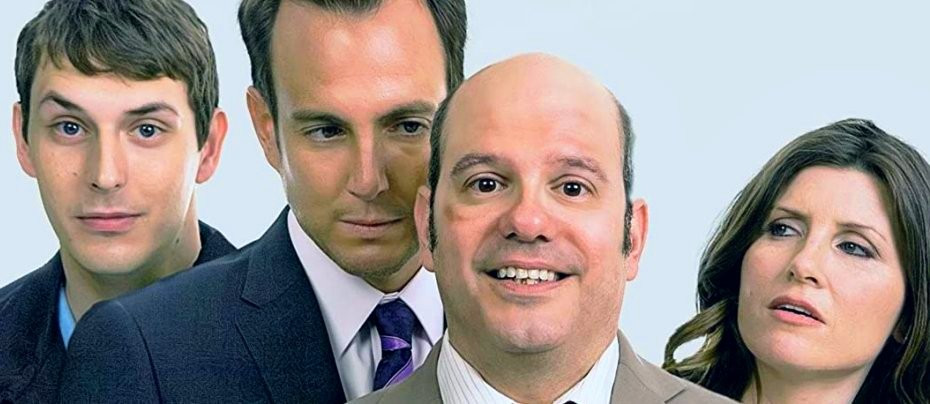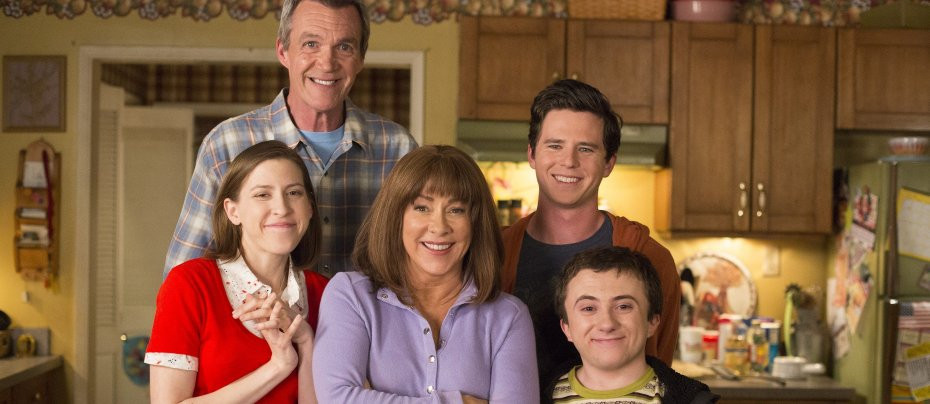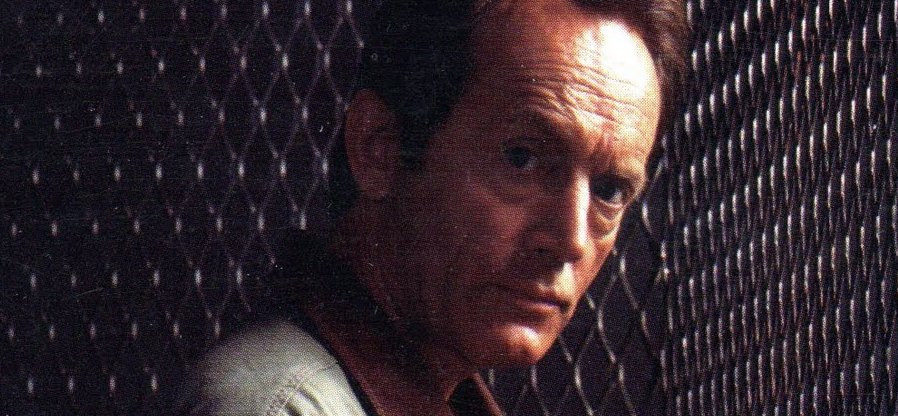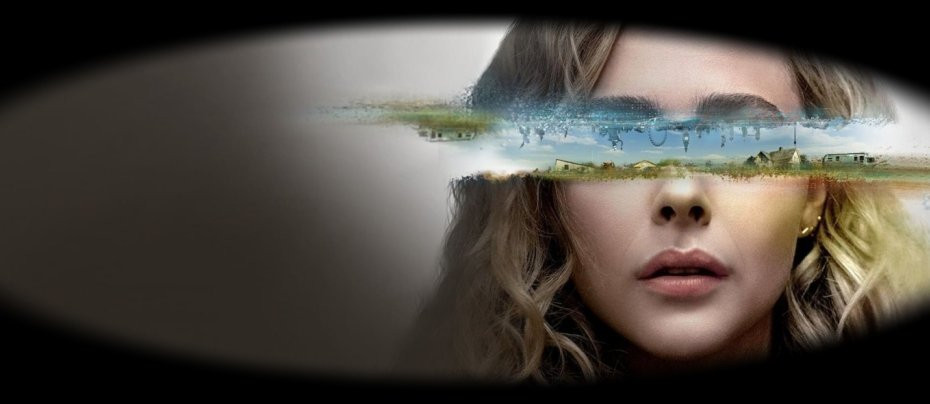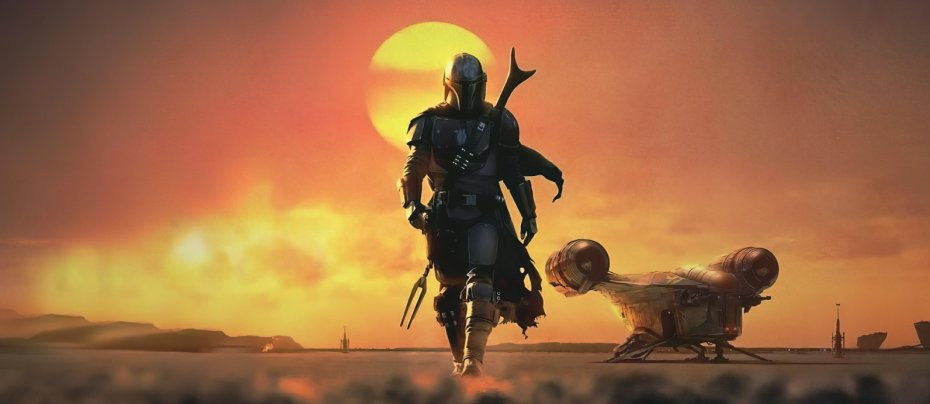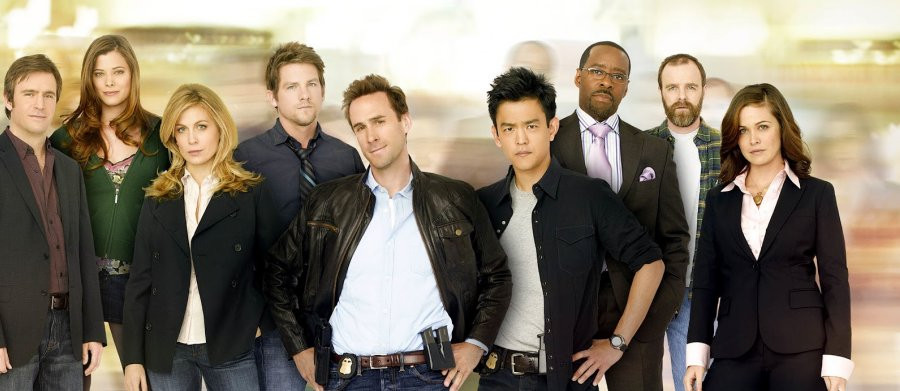
FlashForward
2009 - United StatesThe essential plot of Flashforward, often stylised as FlashForward, is basically a very old story, the best known version of which goes something like this...
A man sees Death pointing at him in the market place in Baghdad. Hoping to outrun Death, the man borrows a horse and gallops over seventy miles in a day to Samarra. Meanwhile, the owner of the horse goes to the market place and asks Death why he was frightening people by making menacing gestures. Death protests, "But I wasn't menacing anyone - my gesture was one of surprise at seeing a man in Baghdad when I have an appointment with him this evening in Samarra."
This is a well established literary trope: the actions a man takes to try to avoid Fate or Destiny or Prophecy turn out to be the very actions necessary to bring it to pass. Another classic example, the Greek myth of Oedipus, is referenced in the 'Flashforward' script.

In 'Flashforward' the story is initiated by "The Global Blackout," in which everyone in the world - apparently - loses consciousness for exactly 137 seconds (the number 137 turns up so often in physics that Professor Richard Feynman suggested it should be a symbol of what physicists do not know). This obviously causes chaos: cars and aeroplanes crash, and there are twenty million deaths worldwide. Yet what disturbs people even more is that during those 137 seconds most have perfectly clear visions of themselves in six months' time, all at exactly the same moment. It seems that in that time the consciousness of the entire human race jumped into the future and back.
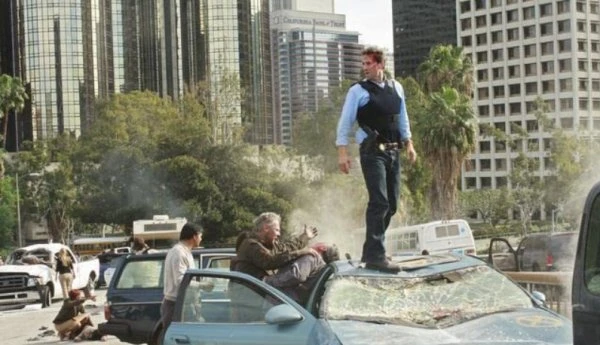
A great many see themselves attending parties to mark the occasion, as one would expect. We are told this, but not shown it, because a television drama demands that its featured characters have more intriguing visions. So a grieving father is shown reunited with his dead daughter, a loving wife is having an affair, a man with no previous religious beliefs has become a convinced evangelist, and an FBI Agent is about to be attacked by heavily armed assassins in his office in the supposedly secure Federal Building.
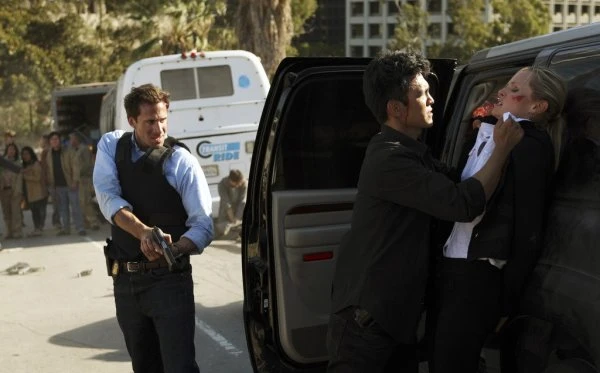
Some see nothing, implying they are totally unconscious - or, more likely, dead. Needless to say, these people, and others with negative visions, want to make sure this future does not happen. However, events begin to occur that suggest that even the most extraordinary visions may be accurate. Meanwhile an FBI task force is formed to find out what caused "The Global Blackout" and to stop it happening again.
This sets up an unusually intelligent drama, as one would expect from Brannon Braga of Star Trek fame and the accomplished David S Goyer. A thought provoking script is not afraid to discuss Big Issues like Destiny and Faith. Some characters take drastic action to change their visions of the future. Can they succeed or is it true that "the Universe always finds a way"?
This is where Flashforward falls victim to the same conceptual flaw as the more recent Devs, which explored similar themes: to know the future is surely to change it. This is one of the reasons time travel is almost certainly impossible (the "Grandfather Paradox" is another). As in Devs, one cannot help feeling that characters in Flashforward who were given very negative views of their futures would be doing more to change them - jumping on the metaphorical horse to Samarra. They would be moving Heaven and Earth to prevent what they have seen. Human nature being what it is, even those whose visions were not so bad would be trying to change minor details out of curiosity or perhaps mischief, and those minor changes might have big effects. Yet most characters seem too accepting of their predicted futures.

The big difference between Flashforward and Devs is that Flashforward was made for a major American network, ABC, so there is a lot more money there on the screen. It kicks off with a disaster sequence that involves some costly looking CGI and there is a lot of location work, even if a keen observer might note that most of the locations just happen to be in the more familiar parts of Los Angeles. So the FBI operation is run out of the LA office, not Washington DC as one might expect, and the corporate headquarters of the bad guys is in Santa Monica, which is only a few miles down Wilshire Boulevard from the Federal Building (even if the really keen observer will also have recognised that the exterior of the "Federal Building" is in fact not that of the real Wilshire Federal Building but of the more telegenic head office of the Los Angeles Department of Water and Power).
The main expense, as usual with big network productions, is a large cast full of familiar faces. It is headed by Shakespeare himself, Joseph Fiennes, as FBI Agent Mark Benford. This was at the height of the fashion for employing well trained British actors as leading men in American episodic drama - Damien Lewis, Dominic West, Andrew Lincoln, etc - playing American characters with accents of variable authenticity. No one is better than Fiennes at tightly wound handsome heroes and it is no surprise that he delivers the goods here too.
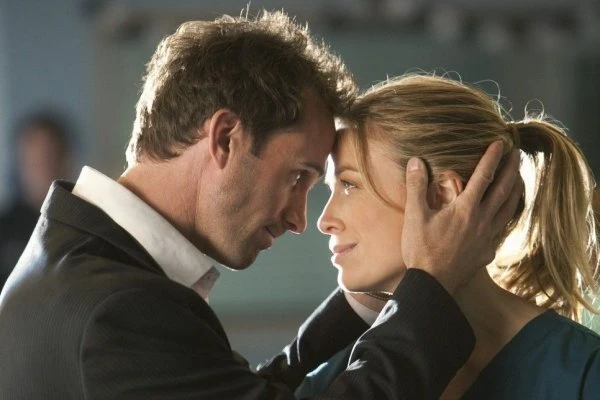
He leads a very strong contingent from the British Isles. Sonya Walger does well with the potentially difficult role of Benford's wife, and Jack Davenport has charm enough to distract attention from the fact that what his scientist character does is actually quite creepy. Dominic Monaghan is enormous fun as a particularly arrogant scientist and is often in danger of stealing the whole show. There is an amusing in-joke about him and a ring. Award-winning Irish actor Brian F O'Byrne has the presence to carry off what is in effect the Liam Neeson role with credit ('Taken' had come out the year before).
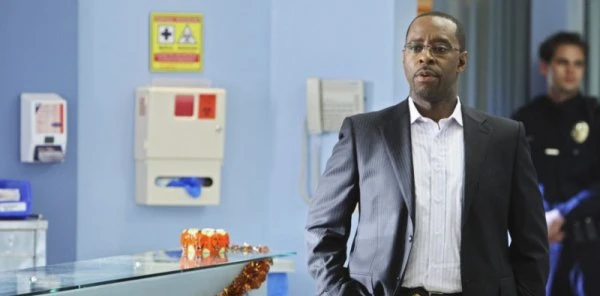
On the American side, Courtney B Vance is, as ever, a suitably commanding figure as Benford's superior, all the while maintaining a nice hint that this is a very political operator who may have an agenda of his own - a theme that doubtless would have been developed in subsequent seasons, had there been any. John Cho is likeable as Benford's young partner and Gabrielle Union is sweet as his supportive fiancée. Christine Woods shows maturity as a young FBI Agent weighed down by secrets.
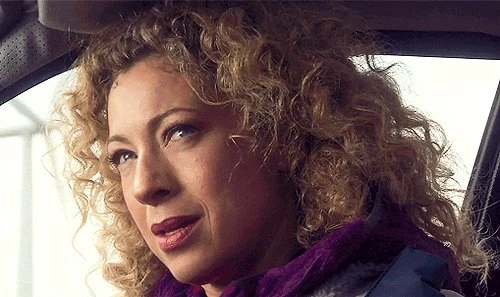
Guest stars include Michael Ealy, Peter Coyote, Barry Shabaka Henley, Shohreh Aghdashloo, Alex Kingston, Ricky Jay (very effective against type), Gil Bellows, Annabeth Gish, Callum Keith Rennie, James Frain, Cynthia Addai-Robinson, Lindsay Crouse, Gina Torres, Kim Dickens, James Remar, Alan Ruck, James Cosmo, Thomas Kretschmann, an uncredited Seth MacFarlane, and the always entertaining James Callis. Some appear only briefly so it is reasonable to assume that the intention was that their characters would have taken on greater significance in later seasons, had they been made.
The show moves at a fast pace, helped by a driving Ramin Djawadi score, and the plot is full of twists and turns
...which may be one of the reasons why, in spite of a strong start, and a positive response from critics, ratings declined steadily until it was cancelled at the end of the first season. The need to fill a full network season of 22 episodes meant that there was simply too much plotting. There were so many surprises and reversals that they began to lose impact. Some of the sub-plots never really took off and even the writers seemed to forget about them. This is understandable given that the whole thing soon became very complicated. A mid season hiatus in transmission required a special hour long summary to remind viewers of the story when it resumed - in effect a "clip show" which is actually rated as one of the most popular "episodes" on IMDb.
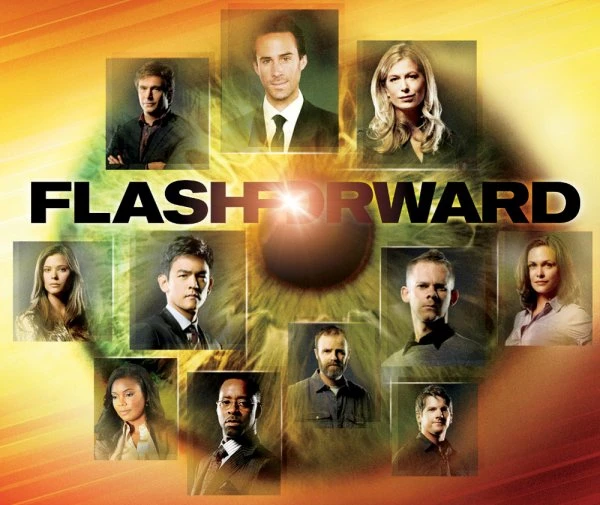
Another factor in the disappointing viewing figures may have been the corporate conspiracy element of the plot: it did not coincide with what the majority of viewers wanted to believe in the optimistic early days of the Obama Administration. It might have chimed better with the public mood a couple of years earlier or a few years later.
Yet those who stuck with Flashforward liked it a lot. Its premature cancellation came as a shock. There is no sign that it was anticipated in the final episode, which sets up new major story developments for subsequent seasons and leaves many existing threads hanging. There is also an earlier plot point that "The End" is predicted for 2016, the year the show would have reached had it run for the usual target of seven seasons, which was traditionally the trigger for continuation in Syndication in the United States.
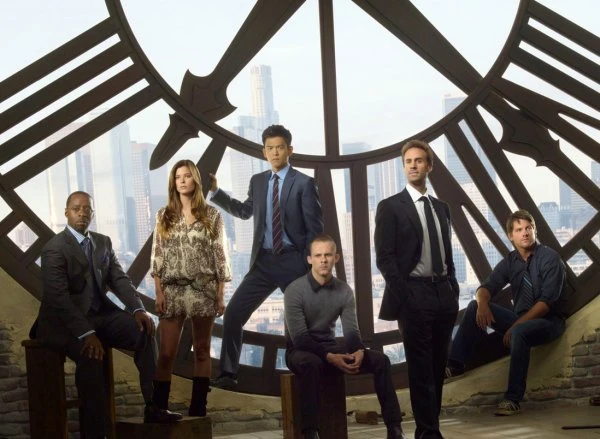
Rewatching it over a decade later in the immediate aftermath of the Coronavirus Year of 2020, one is struck by how Flashforward got one thing absolutely right, the universal sense of uncertainty experienced across the planet following an unexpected global event that impacted on all aspects of life. It feels strangely like a more recent show.
If it was made today, it would probably be for Amazon or Netflix rather than for a major network, and they would probably have cut the season to about 10 episodes. A tighter, less confusing show might well have been a big hit for them.
Even as it is, Flashforward was a splendid piece of television in every department that deserves to be better remembered and may have something to say to our own post-Global Catastrophe confusion.
Review: John Winterson Richards
John Winterson Richards is the author of the 'Xenophobe's Guide to the Welsh' and the 'Bluffer's Guide to Small Business,' both of which have been reprinted more than twenty times in English and translated into several other languages. He was editor of the latest Bluffer's Guide to Management and, as a freelance writer, has had over 500 commissioned articles published.
He is also the author of ‘How to Build Your Own Pyramid: A Practical Guide to Organisational Structures' and co-author of 'The Context of Christ: the History and Politics of Rome and Judea, 100 BC - 33 AD,' as well as the author of several novels under the name Charles Cromwell, all of which can be downloaded from Amazon. John has also written over 100 reviews for Television Heaven.
John's Website can be found here: John Winterson Richards
Books by John Winterson Richards:
Seen this show? How do you rate it?
Seen this show? How do you rate it?
Published on May 26th, 2021. Written by John Winterson Richards for Television Heaven.


